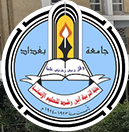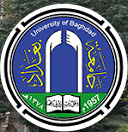Abstract
Iraq was not isolated from the world during the spread of the Covid-19 crisis and the resulting social, economic and political challenges, so that the scene crystallized into a complex global crisis (health - economic) that was reflected in one way or another on the social reality and caused a clear imbalance in human rights, especially the right to live a safe and dignified life, Especially that the impact of this crisis came unevenly between different societies and within the same society among societal groups as well, as the complex crisis showed the fragility of the existing conditions, to find in this the inability of many societal systems to withstand such a challenge as a result of the accumulations of the past and the rapid changes of the present, To achieve this, the research was divided into two theoretical and field sides, and the research adopted the social research method in the sampling method by building a scale consisting of (18) paragraphs and with triple answer alternatives (agree, agree to some extent, disagree) where it was applied to a sample of (150) Researched by academics specializing in sociology, economics and a group of specialists in medical fields. The research reached several conclusions, the most important of which are: The complex crisis has reflected doubly on the fragile, vulnerable and the poorest groups, due to the fact that these groups do not have the ingredients that would enable them to face crises and challenges. The complex crisis demonstrated the weakness and fragility of the existing situation in Iraq, especially the weakness in the response process in order to contain the crises and reduce the damages resulting from them.
Article Type
Article
First Page
417
Last Page
438
Publication Date
9-15-2022
Creative Commons License

This work is licensed under a Creative Commons Attribution 4.0 International License.
Recommended Citation
Kadhum, Mais Mohammed
(2022)
"The Social Repercussions of the Economic and Health Crises in Iraq for the Year 2020: A social study in the city of Baghdad,"
Alustath Journal for Human and Social Sciences: Vol. 61:
Iss.
3, Article 17.
DOI: 10.36473/ujhss.v61i3.1746
Available at:
https://alustath.researchcommons.org/journal/vol61/iss3/17










